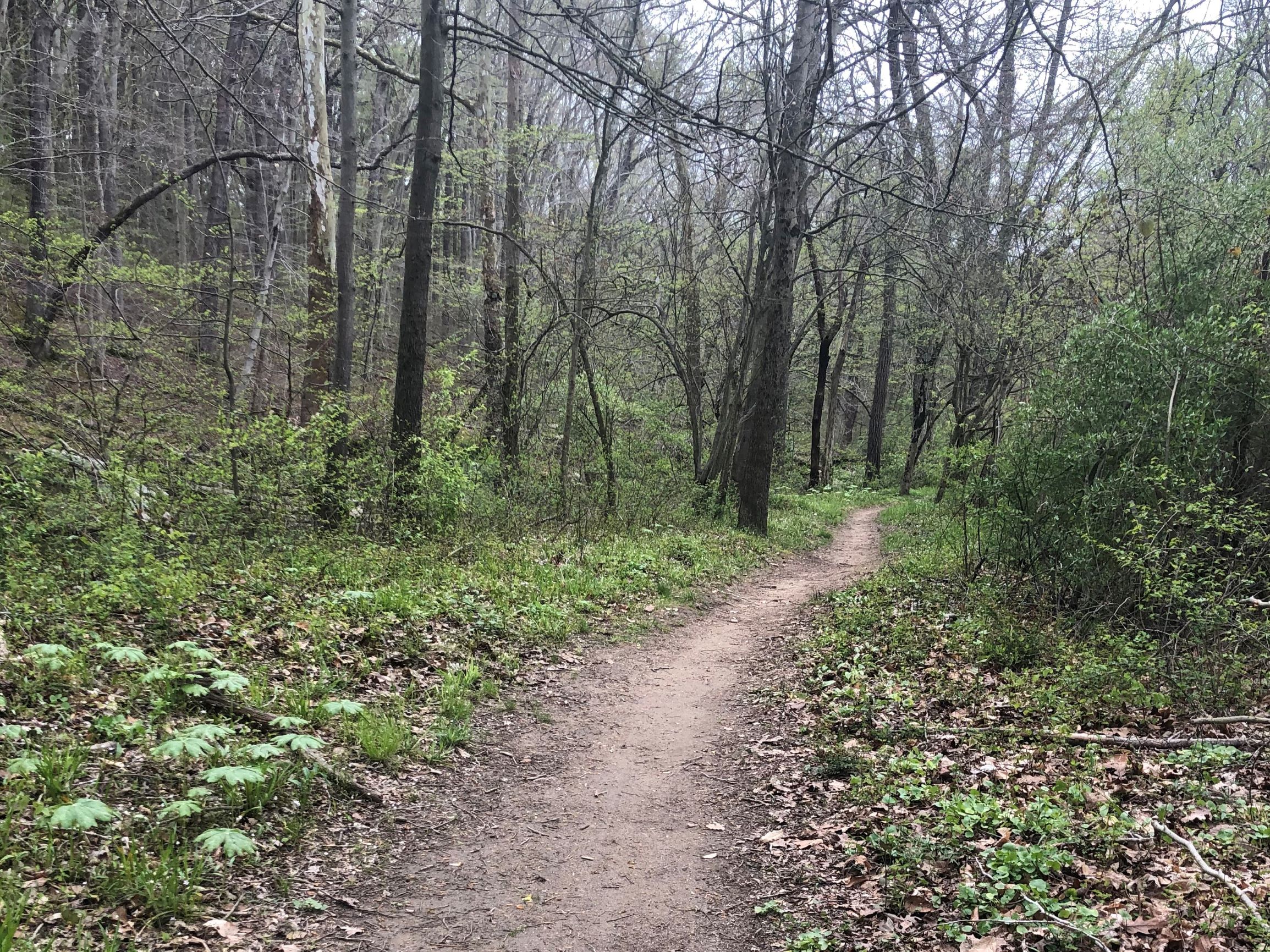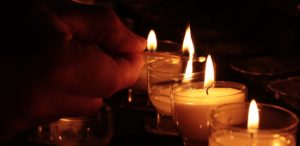Shortly before the lockdown, I found a new trail in the woods. It quickly became a favorite place for running and for walking—alone, with my kids, and with my friends.
The trail has completely transformed in the past twelve weeks—from bare trees and clear sight lines through the woods, to leafy treetops and thick underbrush. Now I am hemmed in by the trail. I hear birds and animals rustling in the brush, but I can no longer spot them easily. The difference is dramatic, but the trail is beautiful both ways—at the tail end of winter and on the cusp of summer.
Sometimes life feels like a June trail — lovely and peaceful, dappled with light and joy. Other times life feels like a winter trail — a stark and foreboding beauty. All of my recent hiking has reminded me of a time in my life a few years ago, not long after my life changed dramatically. One day as I was out walking, I kept hearing these words in my heart: “Trust the trail.”
Can I trust the trail of my life? If I can, it means some important things. For starters, it means I can always let go of regret. Every single minute of all that has come before has led me to where I am right now. It was the path I needed to take to get me to today. Where does regret fit in that picture? It doesn’t. Every step led here. More than that, the past is the only road to the future. If all of that got me here and will get me there, then I say yes.
Trusting the trail also means I can stop expecting myself to be somewhere other than where I am. This is today. If I want to walk from Maryland to California, I’m going to have to set my feet on the states in between. It’s time to stop chastising myself for the things I haven’t done yet, for all I haven’t accomplished. The only road to where I want to go is traveled one step at a time.
I love these verses at the end of Psalm 77: “Your path led through the sea, your way through the mighty waters, though your footprints were not seen. You led your people like a flock by the hand of Moses and Aaron.”
Sometimes life feels utterly overwhelming and disorienting. These last few months have likely felt that way for many of us. We woke one morning to a whole new world where we stayed in our homes and separated ourselves from much of the human connection that defines our lives. For many of us, it’s been sad, lonely, and frightening. These verses remind me that sometimes our path leads through the mighty waters, but that God is with us, even when we can’t see his footprints.
The trail where I walk exists in all seasons—winter and summer, fall and spring. All of the past has led to here, and today will lead to somewhere else, but I can’t get there before my feet fall in this place.


We may not know where we are going; we may not even know where we are, but we can trust the trail because God is leading us, whether we see him or not. Whatever the weather or season, the future is around the bend, up ahead. As long as we keep walking, we can’t miss it.






